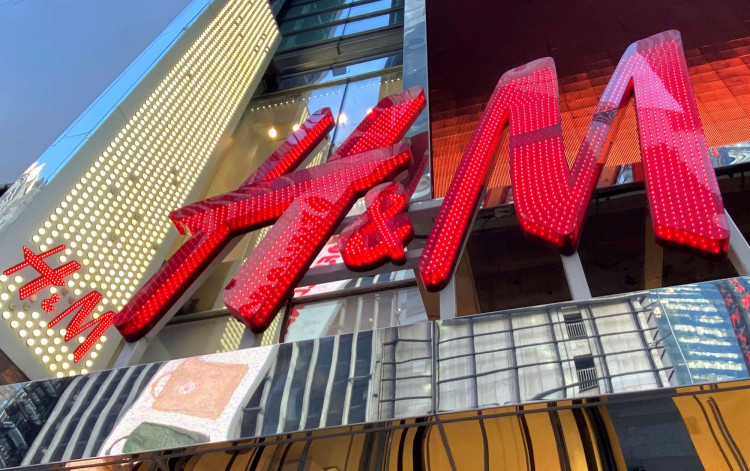H&M has decided to close its flagship Shanghai store, the fast-fashion retailer's newest closure in China, where consumer demand has dropped due to COVID-19 lockdowns. The fast-fashion retailer has also faced a backlash for refusing to use Xinjiang cotton.
Despite having opened earlier this month, the three-story building in downtown Shanghai was boarded up on Friday, with no H&M signage.
Fashion retailers are stuck with piles of unsold stock nearly a month after Shanghai lifted its strict coronavirus disease 2019 (COVID-19) lockdowns, as cautious consumers avoid the commercial hub's glitzy shopping districts.
Curbs to stop the virus shut down Shanghai, China's fashion capital, in April and May, leaving clothing and beauty product displays in stores intact and containers of imported apparel stranded at port.
With the opening of the Shanghai flagship store in 2007, the world's second-largest fast-fashion retailer entered China and quickly expanded. It had over 500 stores in mainland China as of early last year, but its website now only lists 376, including the flagship Shanghai location.
The company declined to comment, citing a blackout period preceding the release of its first-half earnings report on June 29.
Even though a strict two-month lockdown in Shanghai has been lifted, consumers have yet to return in significant numbers to malls.
Chinese consumers have also shunned its products since a letter in which H&M expressed concern about allegations of forced labor in the Xinjiang region surfaced in 2021.
Other brands that have publicly condemned Xinjiang cotton, including Inditex's Zara, Nike, and Adidas, have suffered as well, with Chinese netizens calling for boycotts and Chinese celebrities unwilling to work with them.
According to UN experts and rights groups, over a million people, mostly Uyghurs and other Muslim minorities, have been detained in a vast network of camps in China's western Xinjiang region in recent years.
Many former inmates have reported ideological training and abuse in the camps. China denies all abuse allegations.
However, the reaction to H&M, the first foreign retailer to express concern, has been particularly harsh. Unlike other brands, its products are still unavailable on major Chinese e-commerce platforms like Tmall and JD.com.
The retail sentiment is downbeat weeks after re-opening, with Shanghai consumers yet to return to malls in significant numbers and footfall in major downtown malls at half its usual levels, according to retail staff.
People in Shanghai are hesitant to return to indoor public areas, primarily for fear of being locked down again, as China's tenacious zero-COVID policies demand each time new infections emerge.
A continued ban on in-restaurant dining means that malls will continue to be devoid of their usual food and beverage attractions.






